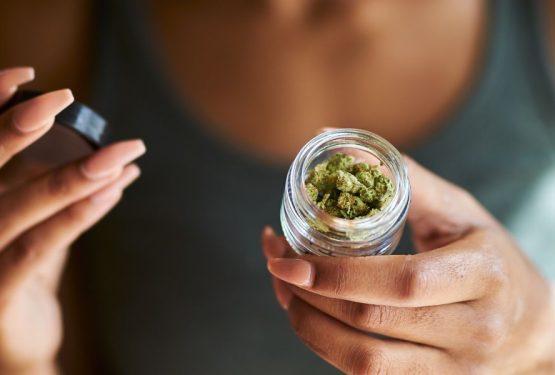Introduction to Industrial Hemp legislatures have taken action to try to promote industrial hemp as an agricultural commodity over the past few years. A wide variety of products like textiles, fibers, and construction materials all utilize hemp. It is estimated that hemp has been used in more than 25,000 products nationwide.
While it is understood that hemp and marijuana products are both derivatives from the cannabis plant, hemp is usually distinguished by the way it is used, physical appearance, and its extremely low concentration of tetrahydrocannabinol (THC). Hemp producers and farmers often grow the plant for the stalk and seeds. The plant is harvested to grow denser, taller, and with only one stalk. In comparison, marijuana is grown shorter and well-spaced.
Federal Action
Former President Barack Obama signed the Agricultural Act of 2014, which is also known as the 2014 Farm Bill. The bill featured Section 7606, which allowed for state departments of agriculture to begin cultivating industrial hemp for limited purposes. In simpler terms, the law allows universities and state departments of agriculture to initiate the cultivation of industrial hemp if:
“(1) the industrial hemp is grown or cultivated for purposes of research conducted under an agricultural pilot program or other agricultural or academic research: and (2) the growing or cultivation of industrial hemp is allowed under the laws of the state in which such institution of higher education or state department of agriculture is located and such research occurs.”
In 2015, a bipartisan group of United States Senators introduced the Industrial Hemp Farming Act of 2015. This act would allow American farmers the opportunity to produce and cultivate their own industrial hemp. The bill would remove hemp from the list of controlled substances as long as it contained no more than 0.3 percent of THC.
Defining Hemp
Across various states in the United States, excluding West Virginia, legislators define industrial hemp as a variety of cannabis containing a tetrahydrocannabinol (THC) content not exceeding 0.3 percent. Notably, West Virginia’s legislation categorizes industrial hemp as a form of cannabis with a THC concentration of less than one percent. In recent years, numerous states have actively endeavored to refine the definition of industrial hemp, particularly concerning THC concentration. These states are striving to clarify that THC levels in industrial hemp are measured on a “dry weight” basis and apply to any derivative of the plant, in accordance with federal guidelines and regulatory frameworks. Furthermore, it is noteworthy that a select few states have implemented additional requirements, mandating that industrial hemp must be in the possession of a licensed grower to fall within the legal definition of the crop. Such provisions reflect ongoing efforts by state governments to align with federal regulations and ensure the proper cultivation and utilization of industrial hemp within their respective jurisdictions.
Criminal Justice and Legalization
State legislatures across various jurisdictions have significantly redefined the legal landscape surrounding hemp and cannabis. They have notably removed hemp from controlled substances lists and established specific regulations for its cultivation. Additionally, states have granted exemptions for industrial hemp within the statutory definition of marijuana, contingent upon adherence to state-mandated guidelines. Several states have enacted provisions providing an affirmative defense for licensed individuals facing charges related to cannabis possession and cultivation under controlled substance laws, often requiring DEA-controlled substance registration. Furthermore, over 20 states have implemented legislation establishing industrial hemp research or pilot programs, typically overseen by state institutions and higher education agencies. These initiatives aim to explore various aspects of hemp cultivation, processing, and economic viability, often requiring collaboration among designated universities and institutions.
While industrial hemp research and pilot programs primarily focus on cultivation studies, certain states have outlined specific guidelines and objectives for these endeavors. State-led initiatives typically aim to investigate the broader implications of industrial hemp cultivation, including economic viability, processing methods, and regulatory frameworks. Moreover, these programs often facilitate collaboration between state agencies, educational institutions, and participants within the hemp industry. Through coordinated efforts and structured research, states strive to gain comprehensive insights into the potential benefits and challenges associated with industrial hemp cultivation, thereby informing future policy decisions and regulatory frameworks.
Industrial hemp contains far less cannabidiol than high-resin CBD-rich cannabis.
The extraction process for CBD requires a large amount of industrial hemp. This increases contamination risks as hemp accumulates toxins from the soil. Although this trait aids phyto-remedial processes, it challenges product safety. Oil extracted from cannabis and hemp concentrates both beneficial compounds and toxins. CBD often serves as a byproduct or co-product of industrial hemp cultivation. This is primarily aimed at other purposes, potentially boosting farmers’ earnings. They can sell residual hemp to CBD extraction businesses.
Low-resin hemp is more susceptible to mold and pest infestation. This is due to its lack of terpenes and cannabinoids found in resin. Before the 2018 Farm Bill, most CBD products came from low-resin hemp. This hemp was mainly grown in China or Europe. With hemp cultivation now legal in the U.S., accessing higher-quality CBD products is easier. These products are made from hemp grown in states like Oregon, Colorado, Montana, and Kentucky. Cannabis thrives in diverse legal and ecological environments. It responds adeptly to human intervention, expanding its capabilities remarkably.






